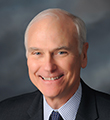Kansas Legislative Insights Newsletter | January 5, 2018
A unique situation
The opening week of the 2018 Kansas legislative session may be the most unique of any opening week in recent memory. Two or three months ago it appeared that Governor Sam Brownback would be confirmed by the U.S. Senate for the position as Ambassador for International Religious Freedom in the Trump administration. It was assumed Brownback, upon being confirmed, would resign and Lt. Governor Jeff Colyer would become the fifth Lt. Governor in Kansas history to serve out the remainder of a gubernatorial term.
For Colyer this would have included the opportunity to deliver the State of the State address to a joint session of the legislature the first week of the 2018 legislative session where he could present his budget and legislation recommendations. He would then spend the remainder of the legislative session guiding those recommendations through the legislative process. Such a scenario would certainly have raised his name recognition prior to the crowded Republican primary race for governor in August.
Now the scene has changed. The U. S. Senate vote to confirm Governor Brownback’s federal appointment did not occur before the Senate recess in December and must be resubmitted to the Senate, where another crack at a confirmation vote will probably not occur until mid-January at the earliest.
This means Governor Brownback will be responsible for delivering the State of the State address to the legislature next Wednesday, even though he will resign following a likely confirmation vote in Washington.
Brownback’s staff has been working with Lt. Governor Colyer on budget recommendations and other policy issues and has allowed Colyer to take the lead on announcing several gubernatorial appointments. Governor Brownback has also indicated that after delivering the State of the State address, Colyer will handle questions with legislators and special interest groups about recommendations set forth in the address. Brownback has also indicated he will have comments concerning the school finance case currently before the Kansas Supreme Court. Whether the Governor’s concerns about that hot-button issue will mesh with those of the Lt. Governor is unknown at this point.
Until the governor resigns, it remains to be seen whether Colyer can effectively espouse any of his own budget and policy proposals that may differ from those of Governor Brownback. How long this unique situation will last really rests with the leadership in the U. S. Senate.
The battle continues
It is hard to remember a time when school finance was not an all-consuming issue in the legislative process. Legislators and the courts have been arguing for years as to what constitutes “adequate” and “equal” funding for the nearly 300 school districts in Kansas.
The last attempt by the legislature at solving the problem in 2017 was rejected by the Kansas Supreme Court, and the Court has demanded that the legislature must forward a new school finance plan to them before adjournment this session. Since it is widely assumed the Court will not accept any plan that doesn't include a significant increase in state dollars, a constitutional showdown between the legislature and the Court may be near since there are no easy answers as to where an additional $300 million to $600 million of state tax dollars could be raised.
In recent sessions, legislators have raised the state sales tax (which is now one of the highest rates in the country) and eliminated the state income tax exemptions for thousands of limited liability corporations (LLCs). So, legislators are unlikely to turn to those revenue streams to solve the shortfall problem.
Even less palatable is the idea of imposing a statewide property tax, which would be the only other major revenue producer available. That leaves the alternative of further cuts in the budgets of state departments and agencies, but such a move would mean draconian double digit reductions in many of those budgets, so this is not a likely source for additional revenue either.
Many legislators would like to pass a constitutional amendment to curb the Supreme Court’s involvement in school finance, but such an amendment would require a 2/3 majority in both houses, plus a majority vote by the public at a special statewide election or at the next primary or general election. Given the increased number of moderate Republicans and Democrats in the House and Senate as a result of the last general election, the chances of getting a 2/3 vote in either house on such an amendment would be very slim.
Work on resolving the school finance conundrum has already begun and will be the center of attention throughout the 2018 session.
A plethora of issues
School finance may be the biggest problem facing legislators this session, but there will still be scores of bills to address other difficult matters, such as those surrounding the Medicaid (KanCare) program and funding of the state retirement system (KPERS).
Since 2018 is an election year for members of the Kansas House, plenty of bills will be introduced that make good campaign material for incumbent legislators, but will have no realistic chance of passing if the bills create an additional drain on State General Fund (SGF) revenues, since almost all new SGF revenues will likely be devoted to funding a new school finance formula.
Keeping you informed
Each week during the session, Legislative Insights will be tracking the introduction and progress of selected bills in the following areas:
- Agribusiness
- Business and Economic Expansion
- Energy and Natural Resources
- Environment
- Financial Services
- Health Care
- Insurance
- Public Health
- Real Estate and Construction
- Taxes
- Telecommunications
- Workers Compensation
It is important to remember that all Kansans are going to be impacted in some manner by actions taken during this legislative session. We hope the weekly issues of Legislative Insights will keep you informed on issues important to you.
The legislative session is scheduled to last until the first week of May, with an extended recess in April. Given the Supreme Court’s mandate that the legislature produce a new school finance plan by a time certain, it would be premature to speculate exactly when the session will end. So stay tuned. It will be a most interesting session.
Kansas Legislative Insights is a publication developed by the Public Policy Law & Governmental Relations practice group of Foulston Siefkin LLP. It is designed to inform business executives, human resources and governmental relations professionals, and general counsel about current developments occurring in current Kansas legislation. Published regularly during the Kansas Legislative Session, it focuses on issues involving health care, insurance, public finance, taxation, financial institutions, business & economic development, energy, real estate & construction, environmental, agribusiness, employment, and workers compensation. Bill summaries are by necessity brief, however, for additional information on any issue before the Kansas Legislature, contact Foulston Siefkin’s Governmental Relations & Public Policy Law practice group leader, James P. Rankin at 785.233.3600 or jrankin@foulston.com.
Kansas Legislative Insights Editors
 |
Jim Maag jmaag1@cox.net 785.806.3472 |
 |
James P. Rankin jrankin@foulston.com | View Bio 785.233.3600 |
Jim Maag and James P. "Jim" Rankin are co-editors of Foulston Siefkin’s Kansas Legislative Insights. Jim Maag, a non-lawyer Governmental Affairs Consultant to Foulston Siefkin’s Governmental Relations & Public Policy Practice Group, provides legislative monitoring and lobbying services for our governmental relations clients. Mr. Maag has had a distinguished career in governmental matters and banking, most recently serving as President of the Kansas Bankers Association. He has been involved in the Kansas legislative process for more than four decades as a legislator, administrator or lobbyist. As a partner at Foulston Siefkin, Mr. Rankin's practice focuses on employee benefits law relating to public, private, governmental, and tax-exempt organizations. A large part of his work involves insurance regulatory and compliance issues in many industries, including health care. Mr. Rankin has been selected by peers for inclusion in The Best Lawyers in America® and the Missouri & Kansas Super Lawyers® list. He is the firm's representative with State Law Resources, Inc., a national network of independent law firms selected for their expertise in administrative, regulatory, and government relations at the state and federal level.
This update has been prepared by Foulston Siefkin LLP for informational purposes only. It is not a legal opinion; it does not provide legal advice for any purpose; and it neither creates nor constitutes evidence of an attorney-client relationship.





